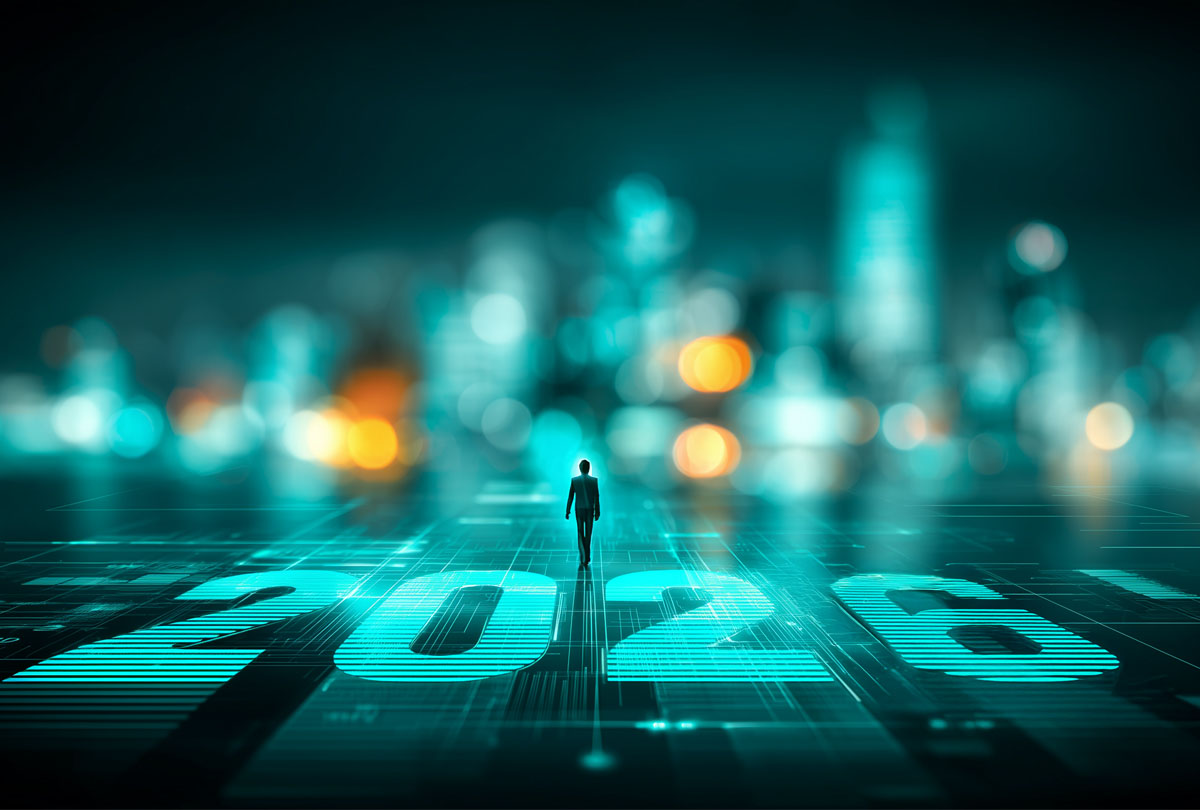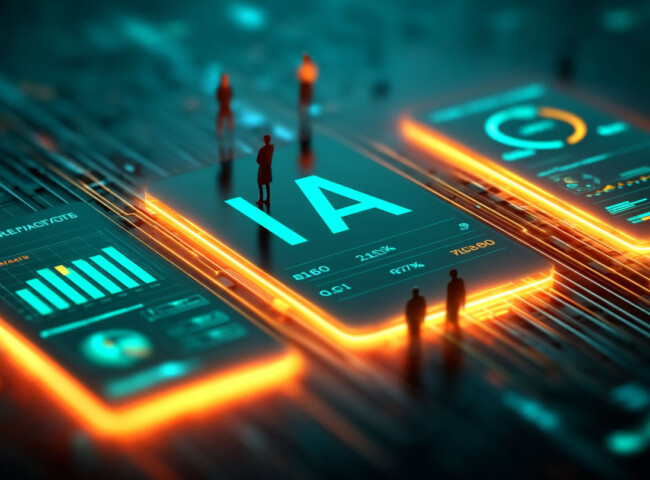B2B marketing trends for 2026

B2B marketing continues to evolve at a breakneck pace. As we move into 2026, businesses will need to stay abreast of the latest trends to remain competitive and generate long-term value. Here, we explore the top B2B marketing trends for 2026 and how they can be implemented to improve your business results.
1) Artificial intelligence and automation
Artificial intelligence (AI) and marketing automation will continue to transform the B2B marketing landscape in 2026. AI tools will enhance companies’ ability to personalize customer experiences and predict behavior, enabling more accurate lead generation and optimized sales strategies.
How to use AI in B2B marketing:
- Email automation and tracking: Use AI to personalize marketing messages and perform automated follow-ups based on user behavior.
- Predictive analytics: Using AI to analyze large volumes of data and predict customer actions, helping to make more informed decisions about campaigns and strategies.
- Chatbots and automated customer service: Improve customer interaction through intelligent chatbots that provide instant answers and personalized solutions.
Implementing AI in your B2B marketing strategies not only improves efficiency, but also reduces operational costs and enhances the customer experience.
2) Personalized and highly relevant marketing
Personalization isn’t new, but by 2026, it will reach unprecedented levels in B2B marketing. Companies can no longer afford a one-size-fits-all approach. B2B customers expect personalized offers tailored to their exact needs, making large-scale personalization essential.
How to achieve effective personalization:
- Advanced segmentation: Use big data and analytics tools to segment your audience into much more specific groups, based on behaviors, interests, and past decisions.
- Dynamic content: Develop content that can adapt in real time to the user’s interests and preferences. For example, use dynamic content tools in emails and websites.
- Personalized experiences in real time: Offer personalized experiences through platforms that adapt to the customer’s past interactions with the brand.
Advanced personalization will generate a better user experience, fostering deeper and more lasting relationships with customers.
3) Video marketing and visual content
- Explanatory videos: Use short videos to show how your product or service works. Tutorial or demo videos can increase your conversion rate, as they help prospects visualize the value of your solution.
- Video case studies: Present video case studies to dynamically show how your product has solved specific problems for other companies.
- Interactive webinars: Webinars will continue to be essential for customer education and relationship building. They also allow for direct interaction with potential customers.
Video is not only effective at capturing the attention of leads, but it also improves brand retention rates.

4) Conversational marketing and chatbots
Conversational marketing is emerging as one of the strongest trends in B2B marketing. As consumer expectations rise, companies must offer quick responses and interactive experiences. Chatbots and live messaging tools will play a crucial role in B2B marketing by 2026.
Implementation of conversational marketing:
- Chatbots for customer service: Implement chatbots that can answer frequently asked questions and guide leads through the initial stages of the sales funnel.
- Real-time messaging: Offer real-time support through messaging platforms such as WhatsApp or Facebook Messenger, where customers can ask questions and receive immediate answers.
- Conversation personalization: Through chatbots, you can offer personalized recommendations based on the user’s previous interactions with the company.
Conversational marketing improves the customer experience and accelerates the process of converting leads into customers.
5) Sustainability and corporate responsibility
By 2026, sustainability and corporate social responsibility (CSR) will have become key drivers of B2B purchasing decisions. Companies are more willing to do business with those that demonstrate a genuine commitment to the environment and communities.
How to integrate sustainability into your marketing:
- Green strategies: Develop products and services that are sustainable and promote these aspects in your marketing.
- Transparency: Customers look for transparent companies, so sharing your sustainable initiatives can improve your brand perception.
- Ecological certifications: Obtain certifications that demonstrate your commitment to the environment and highlight them in your marketing.
Sustainability not only attracts new customers, but also improves customer loyalty and your brand’s reputation.
6) Automation and personalization of the customer experience
Automation will be one of the strongest trends in B2B marketing in 2026. Marketing teams will use tools to automate repetitive tasks, but with an increasingly personalized approach.
How to automate effectively:
- Email marketing automation: Use tools to send personalized emails at strategic moments in the sales cycle.
- Behavioral marketing automation: Set up automated workflows that respond to user activity, such as downloading content or visiting specific website pages.
- CRM and data analytics: Use a CRM to automate customer segmentation and personalize the user experience based on their behavior and preferences.
Automation will improve efficiency, reduce costs, and offer a more personalized experience to customers.
Conclusion
In 2026, B2B marketing trends will be defined by artificial intelligence, advanced personalization, video marketing, and sustainability. Companies that embrace these trends will be better positioned to scale sales, attract qualified leads, and cultivate longer-lasting customer relationships.
If you need help adapting your marketing strategy to the B2B trends of 2026, contact us at Sheridan. We help you implement customized solutions to optimize your marketing results.
Request your free consultation with our experts right here




